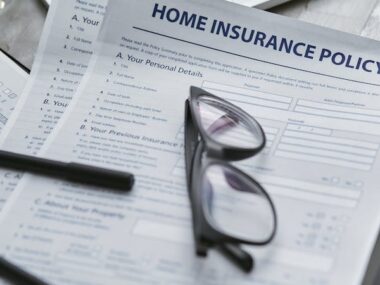
When shopping for home insurance, it’s easy to make mistakes that could lead to paying more for your policy than necessary, or worse, being underinsured when disaster strikes. To make sure you’re getting the best value for your money, it’s important to avoid common pitfalls when requesting home insurance quotes. In this article, we’ll highlight the top 5 mistakes to avoid when getting home insurance quotes, along with tips on how to avoid them.
1. Failing to Compare Multiple Quotes
One of the biggest mistakes homeowners make is settling for the first home insurance quote they receive without comparing it to other offers. Insurance premiums can vary significantly between providers, so failing to shop around could mean you’re missing out on a better deal.
Why It’s a Problem:
- Insurance companies use different methods to calculate premiums, so one insurer may offer a much lower price for the same coverage.
- By only getting one quote, you’re not giving yourself the opportunity to see how other insurers might better meet your needs.
How to Avoid It:
- Make sure to request quotes from at least three to five different insurers.
- Use online comparison tools to quickly gather multiple quotes at once.
- Always ask about discounts or promotions that could lower your premium.
Tip: Don’t settle for the first quote you receive. Even small differences in premiums can add up over time, so it’s worth comparing several options.
2. Underestimating the Value of Your Home and Belongings
A common mistake is undervaluing your home or personal property when obtaining a quote. If your home is underinsured, you could face significant financial losses in the event of a disaster. On the other hand, overinsuring can lead to unnecessarily high premiums.
Why It’s a Problem:
- If your home is undervalued, you won’t receive enough coverage to rebuild it in the event of a disaster.
- Underestimating the value of your belongings could result in insufficient coverage for personal property losses.
How to Avoid It:
- Ensure your dwelling coverage is enough to cover the cost of rebuilding your home, not just its market value.
- Make an inventory of your personal belongings to accurately assess how much coverage you need for them.
- Consider any home upgrades, renovations, or additions when estimating your coverage needs.
Tip: Use an online home valuation tool or consult with an appraiser to determine an accurate replacement cost for your home.
3. Not Accounting for Policy Exclusions
Another mistake homeowners make when requesting quotes is not paying enough attention to policy exclusions. Exclusions are specific situations or risks that are not covered by your insurance policy. If you’re not aware of them, you might assume you’re covered when, in fact, you’re not.
Why It’s a Problem:
- You could be left without coverage for major events, such as flooding, earthquakes, or mold damage, if these are excluded from your policy.
- You might need to purchase additional riders or separate policies to cover exclusions, which could increase your costs.
How to Avoid It:
- Ask your insurer about what’s excluded from the policy and carefully read the fine print of your quote.
- Consider purchasing additional coverage for high-risk situations, such as flood insurance if you live in a flood-prone area.
- Some insurers offer endorsements (riders) that can be added to your policy to cover specific exclusions.
Tip: Make sure to clarify exclusions before committing to a policy, so you’re fully aware of what’s covered and what’s not.
4. Not Updating Your Insurance as Your Life Changes
Life events, such as home renovations, a change in the value of your possessions, or the addition of new family members, can affect your home insurance needs. Failing to update your policy or request a new quote after these changes could lead to gaps in coverage or unnecessarily high premiums.
Why It’s a Problem:
- If you’ve recently renovated your home or added valuable items, your old coverage may not fully protect you.
- Failing to update your policy can result in paying for unnecessary coverage or missing out on discounts.
How to Avoid It:
- Notify your insurer about any changes to your home, such as renovations, new security systems, or expensive purchases like jewelry or artwork.
- Regularly review your policy to ensure it reflects any changes in the value of your property or belongings.
- Ask about discounts for safety features like home security systems or smoke detectors.
Tip: Set a reminder to review your home insurance policy annually to make sure it still meets your needs.
5. Choosing the Cheapest Quote Without Considering Coverage
It’s tempting to choose the cheapest home insurance quote, but opting for the lowest premium can sometimes mean sacrificing the level of coverage you need. While it’s important to keep costs in check, it’s equally crucial to ensure your home is adequately protected in case of an emergency.
Why It’s a Problem:
- A cheap policy may have lower coverage limits or high deductibles, leaving you with higher out-of-pocket expenses in the event of a claim.
- It may exclude important coverage options or fail to cover your home and belongings properly.
How to Avoid It:
- Always compare policies based on coverage, not just price. Look at the coverage limits, exclusions, and add-ons available.
- Consider your specific needs and risks, such as natural disasters or valuable items that require additional protection.
- Choose a policy that strikes the right balance between affordability and comprehensive coverage.
Tip: A slightly higher premium can be worth it if it provides you with better coverage and peace of mind.
Key Takeaways
- Compare Quotes: Don’t settle for the first quote you receive. Always compare offers from multiple insurers.
- Accurately Value Your Home and Belongings: Make sure you have enough coverage to rebuild your home and replace your belongings.
- Understand Exclusions: Be aware of what’s not covered by your policy and consider purchasing additional coverage if necessary.
- Update Your Policy: Life changes such as renovations or new purchases should prompt you to review and update your insurance.
- Focus on Coverage, Not Just Price: The cheapest policy might not be the best deal if it doesn’t offer adequate coverage.
By avoiding these common mistakes, you can ensure that you’re getting the best value from your home insurance policy and are properly protected against potential risks. Take the time to research your options, understand your needs, and avoid rushing into a decision based solely on price.
Would you like more assistance in comparing quotes or have any specific questions about your home insurance coverage?



